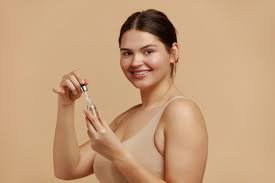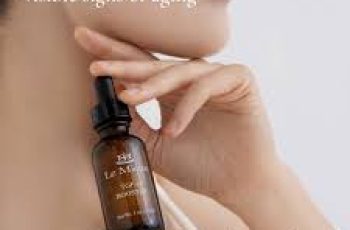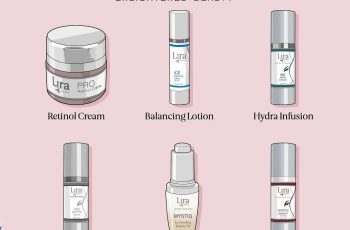
Alpha Arbutin and Beta Arbutin in Skin Care Products: A Comprehensive Guide
Arbutin is a widely used ingredient in skin care products aimed at treating hyperpigmentation. It works by inhibiting tyrosinase, the enzyme responsible for melanin production.
There are two forms of arbutin—alpha arbutin and beta arbutin—each with unique characteristics and benefits.
What is Arbutin?
Arbutin is a molecule used to lighten dark spots and even out skin tone by reducing melanin synthesis. Melanin is the pigment responsible for the color of your skin, hair, and eyes.
Overproduction of melanin leads to hyperpigmentation conditions such as melasma and postinflammatory hyperpigmentation (PIH).
The appeal of arbutin lies in its ability to provide skin lightening effects without the harsh side effects linked to hydroquinone, a powerful but controversial skin depigmenting agent.
Arbutin is available in over-the-counter products, unlike hydroquinone, which often requires a prescription.
Alpha Arbutin vs Beta Arbutin: Key Differences
Though both alpha and beta arbutin have the same chemical formula, their molecular structures differ slightly. This difference in rotational configuration affects their stability and effectiveness.
Alpha Arbutin: This form is synthetic and does not occur naturally in plants. It is considered more potent, blocking tyrosinase more effectively than beta arbutin.
Studies indicate alpha arbutin can be up to 10 times more effective than beta arbutin in reducing melanin production.
Beta Arbutin: Naturally found in several plants such as bearberry, cranberry, blueberry, and wheat. Beta arbutin is favored in natural and organic skincare products.
While slightly less effective than alpha arbutin, it still provides significant skin lightening benefits.
Sources of Arbutin
Alpha arbutin is created synthetically in labs to provide a pure and stable ingredient.
Beta arbutin is extracted from natural plant sources, especially the leaves of the bearberry plant, which has been traditionally used for its skin benefits.
There are also other arbutin derivatives, like deoxyarbutin, which are synthesized chemically and used in some skin care formulations.
How Arbutin Works on the Skin
Arbutin is structurally similar to hydroquinone, a well-known skin lightening agent. The main difference is that arbutin is hydroquinone bound to a sugar molecule.
This bond slows the release of hydroquinone, making arbutin gentler and safer for the skin.
Both alpha and beta arbutin inhibit tyrosinase, the enzyme responsible for catalyzing melanin production. By blocking this enzyme, arbutin reduces melanin synthesis, leading to lighter skin over time.
Benefits of Arbutin
Skin Lightening: Arbutin helps fade dark spots, uneven skin tone, and discoloration caused by sun exposure or inflammation.
Anti-inflammatory: Reduces skin inflammation, which is important because inflammation often worsens pigmentation.
Antioxidant: Protects the skin from free radical damage caused by UV rays and environmental pollutants.
Sun Damage Protection: While not a sunscreen, arbutin reduces pigmentation caused by UV exposure.
What Skin Conditions Can Arbutin Treat?
Arbutin is primarily used to manage hyperpigmentation conditions such as:
Melasma, which causes patchy brown or gray spots.
Postinflammatory hyperpigmentation (PIH), often occurring after acne or skin injuries.
Age spots and sunspots.
Because it also calms inflammation, arbutin helps prevent new pigmentation from forming.
Arbutin vs Hydroquinone: Safety and Side Effects
Hydroquinone is effective but often causes irritation and has been linked to ochronosis, a rare skin disorder. Arbutin is much gentler and less likely to cause these side effects.
Arbutin has lower melanocytotoxicity, meaning it’s less harmful to the pigment-producing cells.
Side effects of arbutin are usually mild, such as slight stinging or allergic dermatitis.
It does not cause ochronosis.
The Environmental Working Group rates arbutin as a very safe ingredient (rating 1).
However, because of its chemical similarity to hydroquinone, some regions, including the EU, Japan, and Australia, have banned arbutin in cosmetics.
Is Arbutin Safe During Pregnancy?
Arbutin releases hydroquinone slowly and in very small amounts, which reduces toxicity. Its low systemic absorption means it does not significantly enter the bloodstream and poses minimal risk to the fetus.
Currently, no studies show arbutin causes birth defects, making it generally safe during pregnancy, though consulting a healthcare provider is advised.
Which Skin Types Benefit Most from Arbutin?
According to the Baumann Skin Typing System, arbutin suits a variety of skin types, especially those prone to sensitivity and inflammation. These include:
Dry, Rosacea-Prone (DRPT, DRPW)
Dry, Sensitive (DSPT, DSPW)
Oily, Rosacea-Prone (ORPT, ORPW)
Oily, Sensitive (OSPT, OSPW)
Its anti-inflammatory properties help soothe irritated skin while lightening pigmentation.
Incorporating Arbutin Into Your Skincare Routine
Arbutin is water-soluble and does not penetrate the skin deeply on its own. To improve absorption:
Pair it with penetration enhancers like hyaluronic acid or oleic acid.
Avoid moisturizers high in saturated fatty acids, which can reduce effectiveness.
Apply arbutin serums before heavier creams and oils.
Combining arbutin with other skin-lightening agents often yields better results.
Environmental Impact of Arbutin
Currently, there is limited information about the environmental effects of harvesting plants for beta arbutin or producing synthetic alpha arbutin.
No significant concerns have been reported, but sustainable sourcing is always encouraged.
Evidence-Based Research on Arbutin
Clinical studies support arbutin’s effectiveness in reducing hyperpigmentation. Combining arbutin with other treatments enhances its effects and lowers the risk of side effects.
This makes arbutin a preferred ingredient in dermatological and cosmetic formulations.
Top Skin Care Products with Arbutin
Many reputable brands offer serums and creams containing alpha or beta arbutin. Alpha arbutin products tend to be more potent and are often found in clinical-grade skincare lines.
Beta arbutin is more common in natural or organic brands.
Choosing the right product depends on your skin type and preferences. A skin care quiz or professional consultation can help you decide.
Final Thoughts: Is Arbutin Right for You?
Arbutin is a versatile, effective, and safe ingredient for treating hyperpigmentation. While not as strong as hydroquinone, it offers a gentler alternative with fewer side effects.
Synthetic alpha arbutin offers higher potency, whereas natural beta arbutin is preferred for those seeking botanical products.
If you struggle with dark spots, uneven skin tone, or melasma, arbutin could be a valuable addition to your skincare routine.
Always patch-test new products and consult a dermatologist if you have concerns.
DQH Knowledge drop: In your 20s, your skin cell turnover decreases. (Cell turnover is a key component in keeping your skin youthful.) You know what else slows down? Your collagen production. Starting in your 20s, collagen decreases by about 1 percent per year. Should you want to prevent fine lines and wrinkles, start by eliminating behaviors that contribute to premature aging. “If it’s bad for you, it’s bad for your skin,” says dermatologist Michel Somenek.
“Cigarette smoking reduces blood flow to the skin and causes premature wrinkling and a dull skin texture. Making the repeated pursed motion to inhale can also cause smoker’s lines. Alcohol and recreational drugs are toxins for the skin that damage its cellular structure and DNA,” Somenek tells us. “The faster you eliminate vices while you are young, the better chance your skin and body have to recuperate.” Also, adopting an anti-aging routine in your 20s is key. After all, the best offense is a good defense. We spoke to Somenek and experts Joshua Ross and Audrey Kunin to find out more.
Keep reading for the best anti-aging products for your 20s, according to skincare professionals.
Sunscreen
“We all know that the sun is the number one cause of skin aging and starting the prevention in your 20s is very important,” Ross says. “The majority of your sun damage won’t start to appear until you’re in your 30s, so don’t wait until you see it surface or you’ll be behind the curve. Stay ahead of it with a good-quality zinc-based sunscreen worn daily.”
Farmacy Green Defense Daily Mineral Sunscreen
An invisible sunscreen with SPF 30, plus botanical extracts meant to protect skin with tons of antioxidants. Bonus: It’s clean and fine to use under makeup.
Bareminerals Complexion Rescue™ Tinted Moisturizer Broad Spectrum SPF 30
Although we recommend you use your SPF and moisturizer separately, we also understand moments when you don’t have time or energy for that extra step. For those times, this bareMinerals moisturizer is a great thing to have on hand.
Vitamin C Serum
“A great introduction to anti-aging is to start with a vitamin C serum in your morning skincare routine,” Ross says. “It’s a powerful antioxidant that will neutralize free radicals and brighten the skin.” He adds that it’s a great way to counteract the effects of the sun’s harmful rays, which, as previously mentioned, are among the biggest causes of premature aging.
Drunk Elephant C-Firma™ Vitamin C Day Serum
The Drunk Elephant C-Firma is a lightweight serum that promises to give skin a glow by combining the brightening powers of vitamin C with ferulic acid, l-ascorbic acid, and vitamin E. The included sodium hyaluronate is meant to replace hydration loss, so you shouldn’t have to deal with any irritation.
Sunday Riley C.E.O. Rapid Flash Brightening Serum
This potent serum is jam-packed with vitamin C (15 percent, to be exact), which means it’s a potential superstar at both brightening skin and dousing it in antioxidants.
Peptides
Using peptides on your skin has many benefits, says Somenek. “The skin barrier is what defends the body against pollution, UV rays, bacteria, and toxins. It can be damaged by several everyday factors. Using topical peptides aids in building a stronger barrier,” he says. “Peptides comprise elastic fibers, which are a type of protein. These fibers help to make skin appear taut and firm. Peptides can also help repair damaged skin, relieve inflammation, and even out skin tone. Some peptides can kill acne-causing bacteria that is common in 20-somethings.”
Kunin agrees, saying, “Peptides are an excellent entry point for supporting collagen.” She recommends looking for face and eye treatments that contain these collagen-boosting powerhouses.
Charlotte Tilbury Magic Eye Rescue Cream
This Charlotte Tilbury super-emollient eye cream has a base of coconut oil and shea butter (read: it’s incredibly hydrating). Botanicals plus peptides are meant to help reduce dark circles and boost collagen, respectively.
This creamy moisturizer serves up potent collagen-boosting peptides and pycnogenol, and antioxidant-rich vitamin C. “Instead of sitting on top of the skin, peptides penetrate the outer layer so they go deep. The ‘signals’ they send tell the cells to produce elastin and collagen, which are needed for youthful-looking skin,” explains Somenek.
At-Home Peel Pads
Remember that skin cell turnover fiasco we talked about earlier? One way to help support it is by exfoliating. “Exfoliation is important to help keep skin fresh and luminous,” Kunin says. She recommends using at-home peel pads as an easy and effective way to exfoliate.
“The goal in your 20s is to fight the slowing pace of cell turnover. It is wise to use products that gently exfoliate, yet still remove oil and other impurities. Products that have Alpha Hydroxy Acids (AHA) or Beta Hydroxy Acids (BHA) are a good choice.”
According to Somenek, you should only exfoliate two to three times a week. “People of all ages are guilty of over-exfoliating and that can be too much of a good thing,” he says.
Dermadoctor Kakadu C Intensive Vitamin C Peel Pad
A few swipes of this Derma Doctor powerful peel pad promise to leave your skin glowing and smooth, thanks to the seven (yes, seven) types of chemical exfoliants, including AHA and BHA. It also contains vitamin C via Kakadu plum extract for added brightening and antioxidant protection.
KEY INGREDIENTS Kakadu plum extract is sourced from the Kakadu plum, a fruit grown in northern Australia. It contains vitamin C, which restores the skin’s natural barrier, increases collagen production, and soothes irritation.
Dr. Dennis Gross Skincare Alpha Beta® Universal Daily Peel Pads
These are the gold standard of peel pads, with a cult following and over 900 five-star reviews on Sephora. They’re easy to use and contain a blend of anti-aging exfoliating acids.
Emollient Night Cream
“In your 20s, you need to start upping the hydration in your skincare routine. You may have been cautious of over-moisturizing because of acne in your teens, but as you enter your 20s, your skin transitions and becomes drier,” Ross says. “I recommend an emollient night cream added into your evening skincare regimen.”
“Twenty-somethings need to make sure that they are not using creams that will clog their pores and cause excess oil production,” says Somenek. Opt for non-comedogenic products.
Cerave Skin Renewing Night Cream
One great choice is the CeraVe Skin Renewing Night Cream, which is a non-comedogenic night cream that leaves skin soft and glowy. It combines the moisturizing powers of ceramides and hyaluronic acid.
RoC Retinol Correxion Max Hydration Creme
“The best night cream ingredients contain retinol, benzoyl peroxide, and/or salicylic acid or hyaluronic acid. The goal is to moisturize, yet remove excess oil,” says Somenek. This Roc Retinol Correxion cream fits the bill as it contains both hyaluronic acid and retinol so it promises to moisturize while also being non-comedogenic.



